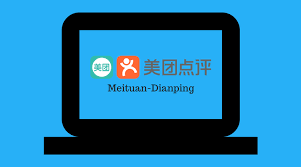Meituan Is Said to Plan $6 Billion IPO Filing This Month

China’s restaurant review and delivery giant Meituan Dianping plans to file for an initial public offering of about $ 6 billion in Hong Kong as soon as this month, according to people familiar with the matter, the city’s second multibillion-dollar public listing by a tech startup this year.
The company is considering selling about 10 percent of the company, the minimum required under Hong Kong exchange rules, to avoid dilution, said one of the people, who asked not to be named because the matter is private. Meituan is targeting a valuation of roughly $ 60 billion, the person said, although the valuation and fundraising target won’t be in the initial filing documents. With the first filing in June, the actual listing of Meituan shares is likely around October, the people said.
Meituan is also considered a prime candidate to sell shares in mainland China as part of the government’s program to give more opportunities to domestic investors. It’s not clear yet when the sale of Chinese depository receipts would take place. Meituan declined to comment on a potential IPO and said that if it has specific fundraising plans it will announce them at the appropriate time.
The IPO is another sign of China’s rising might in the technology industry, which has become a flashpoint for trade tensions with the U.S. A generation of up-and-comers like Meituan are emerging to build out an industry that has been dominated by Tencent Holdings Ltd., Alibaba Group Holding Ltd. and Baidu Inc. Smartphone maker Xiaomi Corp. is said to plan raising about $ 10 billion by selling shares in Hong Kong and mainland China.
Read More: Tencent Backed Super-App Emerges to Rival its Own WeChat
Meituan was most recently valued at $ 30 billion, making it the world’s fourth most valuable startup, according to CB Insights. It is sort of a mash-up of Groupon, Yelp and Deliveroo with restaurant reviews, group-buying discounts and deliveries of food, groceries and other goods. It has more recently expanded into areas such as ride-sharing and travel.
With a few taps to navigate its smartphone apps, Chinese customers can order up hot meals, groceries, massages, haircuts and manicures at home or in the office. Founded in 2010 by Wang Xing, it handled $ 57 billion of transactions last year between about 320 million active buyers — about the size of the American population — and more than four million merchants.
The company however faces formidable rivals in key businesses. It’s competing with entities backed by Alibaba in food delivery, with Didi Chuxing in ride hailing, and even with its own backer Tencent in payments. It also expanded into bike sharing with a deal for Mobike said to be valued at $ 3.4 billion. An IPO would give Meituan additional capital to compete in existing businesses and even to expand. No final decisions have been made, and details of the offering could change, the people said.
“Meituan has been expanding its business from offline stores selling fresh products to online cab hailing, and also purchased Mobike earlier this year,” said Yang Xin, a researcher at Analysys International. “They are in need of a large amount of capital to support all those businesses.”
Didi, the ride hailing leader, has also been considering an IPO. Meituan’s rapid push to go public may suck up some of the capital that would otherwise be allocated to Didi.
Meituan’s other existing backers include Booking Holdings Inc., Sequoia Capital, Canada Pension Plan Investment Board, Trustbridge Partners, Tiger Global Management, Coatue Management and Singaporean sovereign wealth fund GIC.
Those investors and more have handed Meituan $ 7.3 billion in funding over the past two years. It’s now also begun promoting the use of its own digital wallet on its app: it handles about a fifth of overall transactions on its platforms. Tencent accounts for about 60 percent while Ant Financial’s Alipay and others contribute about 20 percent.




